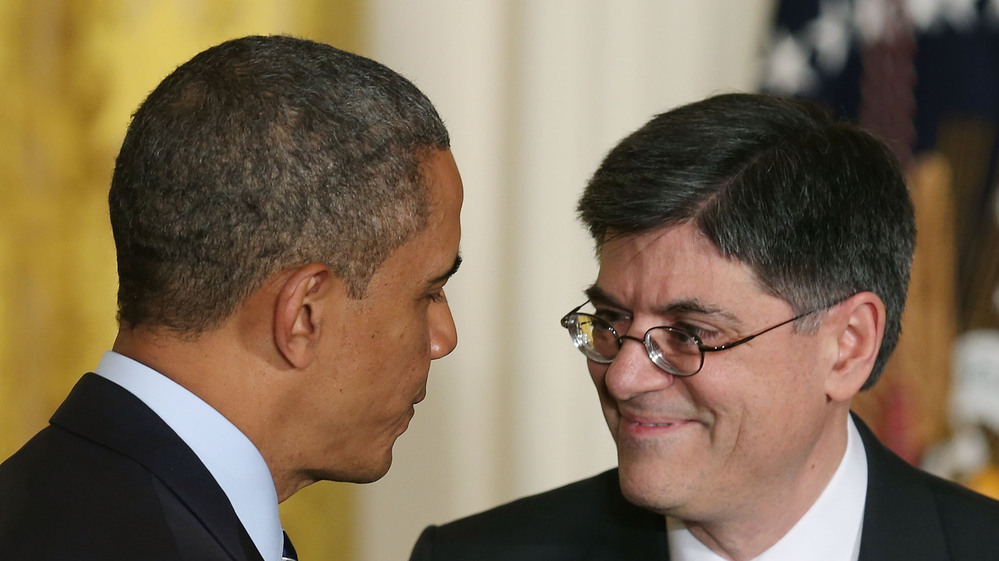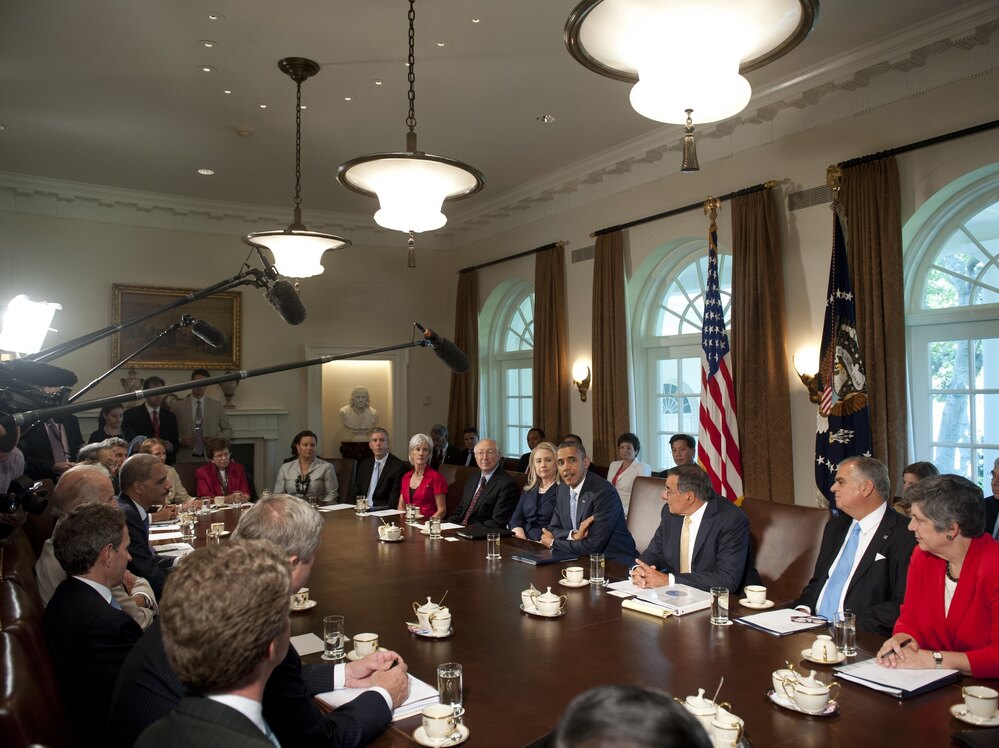President Obama nominates Jacob Lew to be his second-term Treasury secretary on Thursday at the White House.
President Obama nominates Jacob Lew to be his second-term Treasury secretary on Thursday at the White House.
Mark Wilson/Getty ImagesA re-elected president who gets to choose a second-term Cabinet has much more knowledge of the kind of team he needs than he did the first time around.
That's one simple way to understand President Obama's decisions as he creates his Cabinet 2.0.
The choices are not those of a president-elect who hasn't moved into the White House, or of a green president who hasn't watched his first international crisis unfold from his leather seat in the White House situation room.
They are, instead, the picks of a seasoned commander in chief comfortable with the levers of power and wiser in the cynical ways of Washington.
Given that, the choices we've seen so far â€" John Kerry at State, Chuck Hagel at Defense and Jack Lew at Treasury â€" are those of a president filling his second-term team with more of an eye toward what he wants than what political expectations demand.
"The first Cabinet you have a couple of things." said Dan Glickman, who served as Agriculture Secretary for President Bill Clinton and is a senior fellow at the Bipartisan Policy Center. "One is you have some political responsibilities, so your appointments may reflect more of trying to deal with some of the issues of who supported you."
The naming of Hillary Clinton to be Obama's first secretary of state fits that category, Glickman said. "He appointed Secretary Clinton, an opponent of his [in the 2008 Democratic primaries] but someone I think he appointed both for her ability and competence but also for political reasons."
Another category, Glickman said, reflected the exigencies of the moment. For instance, "he kept Secretary [Robert] Gates on [at Defense] for continuity purposes" because of the Iraq and Afghanistan wars.
"The second Cabinet appointees tend to be less political and more substantive and more in line with the president's personal beliefs and comfort level," said Glickman, who was Clinton's second Agriculture secretary.
When he named his first Cabinet, Obama didn't only have to fulfill the political expectations of many of the supporters of Hillary Clinton's 2008 presidential campaign â€" who shifted their support to him after the primaries â€" he also had to take into account the expectations of the global financial markets.
President Obama holds a meeting with his first-term Cabinet in the White House on July 26, 2012.
President Obama holds a meeting with his first-term Cabinet in the White House on July 26, 2012.
Saul Loeb/AFP/Getty ImagesThat's how Timothy Geithner got to be Treasury secretary in the first place. In his previous job as president of the New York Federal Reserve, Geithner had played a front-line role in the bailouts of major financial institutions during the height of the subprime mortgage-induced financial implosion.
With the fight-or-flight response of anxious investors tilting dangerously toward flight as Obama became president in January 2009, the choice of Geithner was meant to reassure investors that an experienced financial crisis manager was in charge at Treasury.
Of course, Geithner initially caused a bit of a financial panic himself when he was underwhelming, to say the least, in his widely panned first news conference, But the moment passed and Geithner is generally viewed upon his departure as a success.
A hard reality any re-elected president must face â€" Obama perhaps even more than his predecessors because of how polarized Washington has become â€" is that there are only so many people who have the president's confidence, experience to run a Cabinet department, personal backgrounds that can withstand vetting and are politically acceptable to the opposition party.
"There's an emphasis here on loyalty, particularly with the Treasury secretary's position," said David Lewis, a political scientist at Vanderbilt University who has studied presidential appointments.
"You want people in there that you trust," Lewis said. "And that limits the pool of people who really can be selected for these jobs. If you want somebody who you trust, and you want somebody who can get confirmed, particularly in this political environment, that's not a large group of people."
Those necessities made it even less likely that the president would chose new voices for his Cabinet of the sort some observers have called for.
"This idea about new voices in the second term, I kind of want to say, for what?" Lewis said. "It's already clear what's on the agenda. And things that pop up on the agenda that are unexpected you want experienced hands to deal with, whether it's a foreign policy crisis that emerges that you don't anticipate, or whether it's a horrendous shooting in Newtown. It's not the time for brainstorming about what the second term of the administration should be about. It's about taking advantage of a shorter honeymoon, executing and establishing a legacy. And you need experienced hands to do that."
Of course, not all of those experienced hands need be those of white men. Obama has been criticized for choosing none but white men so far for his second term Cabinet.
Those criticisms obviously don't seem to account for the fact that he did float the Susan-Rice-for-secretary-of-state trial balloon, only to have congressional Republicans deflate it.
Also, while the fact that the most important person in the White House Cabinet room is African-American doesn't minimize the importance of the diversity issue, it's about the biggest counterweight to it you could have. If any president is likely to be sensitive to diversity's importance, it would presumably be Obama.
"I give great deference to presidents in making their appointments," Glickman said. "We have a president who is the first African-American president. There's plenty of diversity in the highest levels of our executive branch. ... I don't really have anything to criticize him with on this. It's easy to second-guess from the outside.
"He's picking the people who he thinks are most qualified and who he is most comfortable with," said Glickman. "And that's what you have to have in an administration. A president has to have Cabinet people he can trust and he can be confident in that they're not only going to carry out his policies but they have a good personal relationship with him as well. That's more important than the other categories right now."






